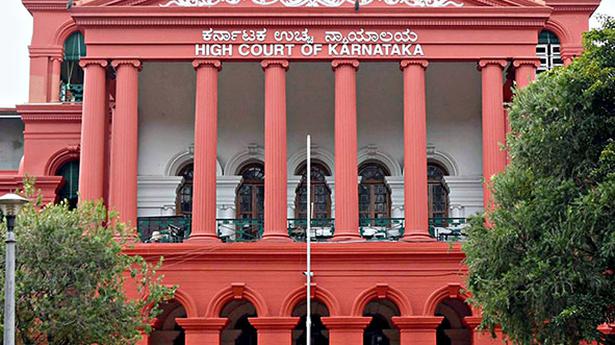
Karnataka HC comes to the rescue of electricity accident victims, awards total compensation of ₹1.28 crore
The Hindu
Victims in two of the cases were minors who were paid only a nominal amount of ₹2.5 lakh and ₹5 lakh in 2020 after the intervention of the state child rights commission
Coming to the rescue of victims of electricity accidents, including two minors, who were deprived of immediate compensation, the Karnataka High Court has directed the public electricity distribution and supply companies to pay a total compensation of ₹1.28 crore in three separate incidents that occurred during 2017-18.
“The action of the respondent in not disbursing the ex-gratia compensation in terms of the Government’s norms is an arbitrary action insofar as the very object of providing ex-gratia compensation stands defeated by non-disbursement,” the Court observed.
Justice S. Sunil Dutt Yadav issued the directions on August 4 while allowing three separate petitions. The petitions were filed by Rekha, the widow of an agricultural labourer who was electrocuted at a coffee plantation in Sakaleshpura of Hassan district, 15-year-old Chandana K. of Lottegollahalli in Bengaluru, and seven-year-old Muizz Ahmad Shariff of Gurananpalya in Bengaluru.
The Karnataka Power Transmission Corporation Ltd (KPTCL) and Bangalore Electricity Supply Company (Bescom) had paid only a nominal amounts of ₹2.5 lakh to Chandana and ₹5 lakh to Muizz in 2020 after the intervention of the Karnataka State Commission for Protection of Child Rights.
“By no stretch of imagination could it be asserted that the child ought to have exercised due care and caution in not going near the high-tension electrical line (HT line) and coming within the induction zone, as the child could not be expected to maintain the buffer distance,” the Court observed while stating that the question of fastening of contributory negligence on the child would not arise.
Rejecting the contention of the KPTCL and Bescom that the litigants will have to approach the trial court for compensation as it involves various disputed facts, the Court said that enforcement of ‘public law remedy’ is de-hors the remedy available to claim compensation under the ‘private law remedy’ before the civil courts.
The Court also said that the question of dispute about the accidents under Section 161 of the Indian Electricity Act, 1910, does not arise in these cases as the reports of the Electrical Inspector had confirmed the accidents, their causes and the lapses of the authorities.













